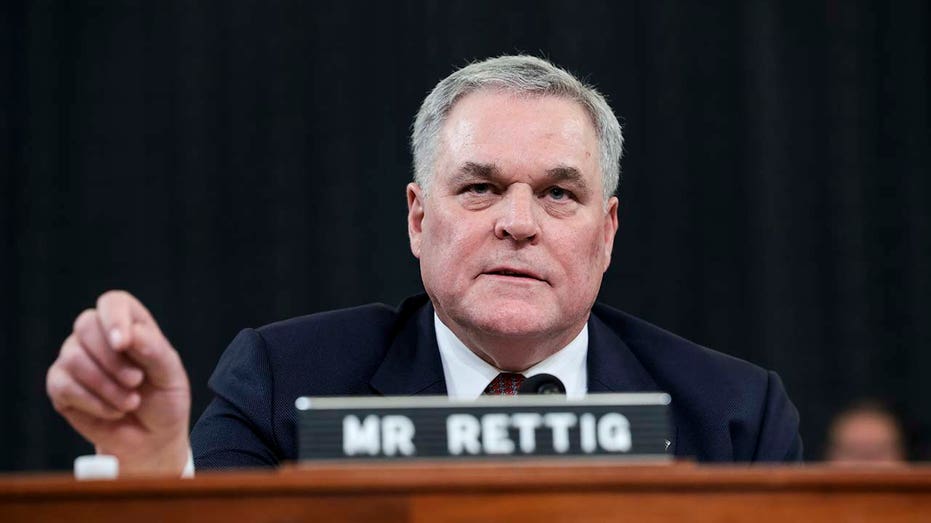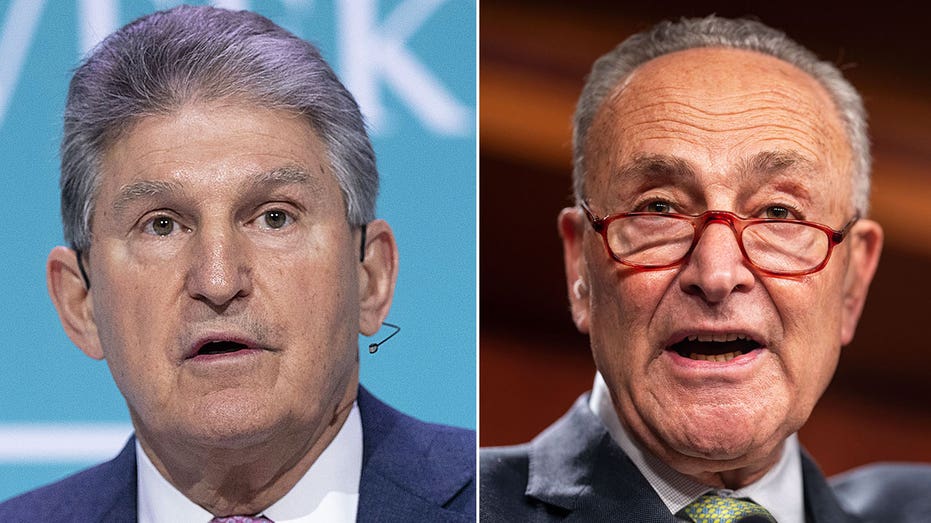Middle-class Americans to bear brunt of IRS audits under Dem inflation bill, analysis shows
Americans making less than $75,000 will be subject to 710,863 additional audits, according to the analysis
Americans who earn less than $75,000 per year are slated to receive 60% of the additional tax audits expected under Democrats' spending package, according to an analysis released by House Republicans.
The analysis, which is a conservative estimate based upon recent audit rates and tax filing data, shows that individuals with an annual income of $75,000 or less would be subject to 710,863 additional Internal Revenue Service (IRS) audits while those making more than $1 million would receive 52,295 more audits under the bill. The legislation, the Inflation Reduction Act, would roughly double the IRS' budget to increase enforcement and, therefore, federal tax revenue.
"Value shoppers at Walmart and other retailers, already struggling with higher prices and more expensive fuel to drive to the store, will get hit with 710,000 additional audits thanks to the Manchin-Biden Democrat bill," House Ways and Means Committee ranking member Kevin Brady, R-Texas, said in a statement after releasing the study.
"Every retailer in the U.S. who cares about their hard-hit customers should be fighting to block this unnecessary harassment of hard-working Americans," he added.
INFLATION REDUCTION ACT: WHAT TAX HIKES ARE IN THE BILL?

IRS Commissioner Charles Rettig testifies before the House Ways and Means Oversight Subcommittee on March 17, 2022. (Kevin Dietsch/Getty Images / Getty Images)
Overall, the IRS would conduct more than 1.2 million more annual audits of Americans' tax returns, according to the analysis. Another 236,685 of the estimated additional audits would target individuals with an annual income between $75,000 and $200,000.
To boost tax enforcement, the Inflation Reduction Act would appropriate more than $79 billion in additional funds to the IRS over the next decade, nearly doubling the agency's current budget. The IRS is expected to hire tens of thousands more agents to enhance enforcement efforts that are projected to increase revenue by $124 billion.
In response to criticism about the expected uptick in tax audits under the bill, IRS Commissioner Charles Rettig said Thursday that "audit rates" will not increase relative to recent years.
US ECONOMY ENTERS TECHNICAL RECESSION AFTER GROWTH TUMBLES 0.9% IN THE SECOND QUARTER
The legislation doesn't explicitly guarantee that Americans making under $400,000 won't see tax increases under the IRS provision. The bill states that it is not "intended" to increase rates for taxpayers who aren't in the top 1% of earners.
"There is language in this bill that provides some guidelines, but it's not at all a guarantee," William McBride, the vice president of federal tax and economic policy at the nonpartisan Tax Foundation, told FOX Business in an interview. "It indicates that the intent of the increased spending is not to target those earning less than $400,000. But intent is a somewhat squishy word."

Sen. Joe Manchin and Senate Majority Leader Chuck Schumer were the lead architects of the Inflation Reduction Act which passed the Senate on Sunday. (F. Carter Smith/Bloomberg via Getty Images | Kent Nishimura/Los Angeles Times via Getty Images / Getty Images)
"The fact of the matter is most returns report income under $100,000," he continued. "That's where the money is, so to speak."
McBride added that middle-class Americans aren't able to afford the same resources as wealthy individuals to avoid scrutiny.
CLICK HERE TO READ MORE ON FOX BUSINESS
"There are certainly more resources as you go up the income scale, or more expertise, and the IRS knows it," he told FOX Business.
"They will need to increase the audit rates on middle-class and low-income folks to get the sort of revenues they're claiming from this," McBride said. "People who don't have the resources get a letter in the mail from the IRS threatening them – what are they going to do? It might be an increase of a few bucks, a few hundred bucks that the IRS is requesting. Rather than go out and try to get a lawyer to fight it, they generally pay it."
The White House referred FOX Business back to Rettig's comments.
The Associated Press contributed to this report.





















